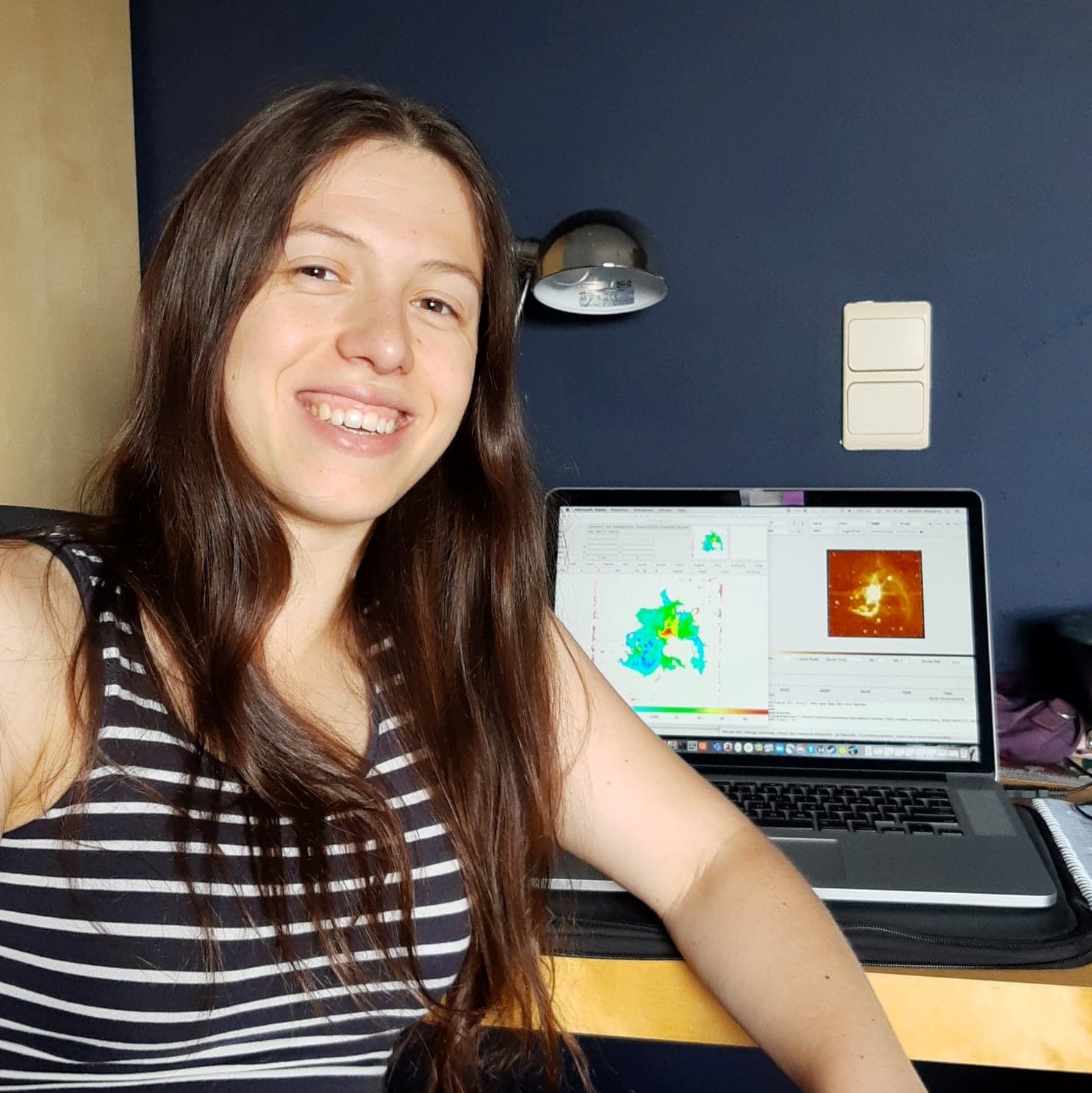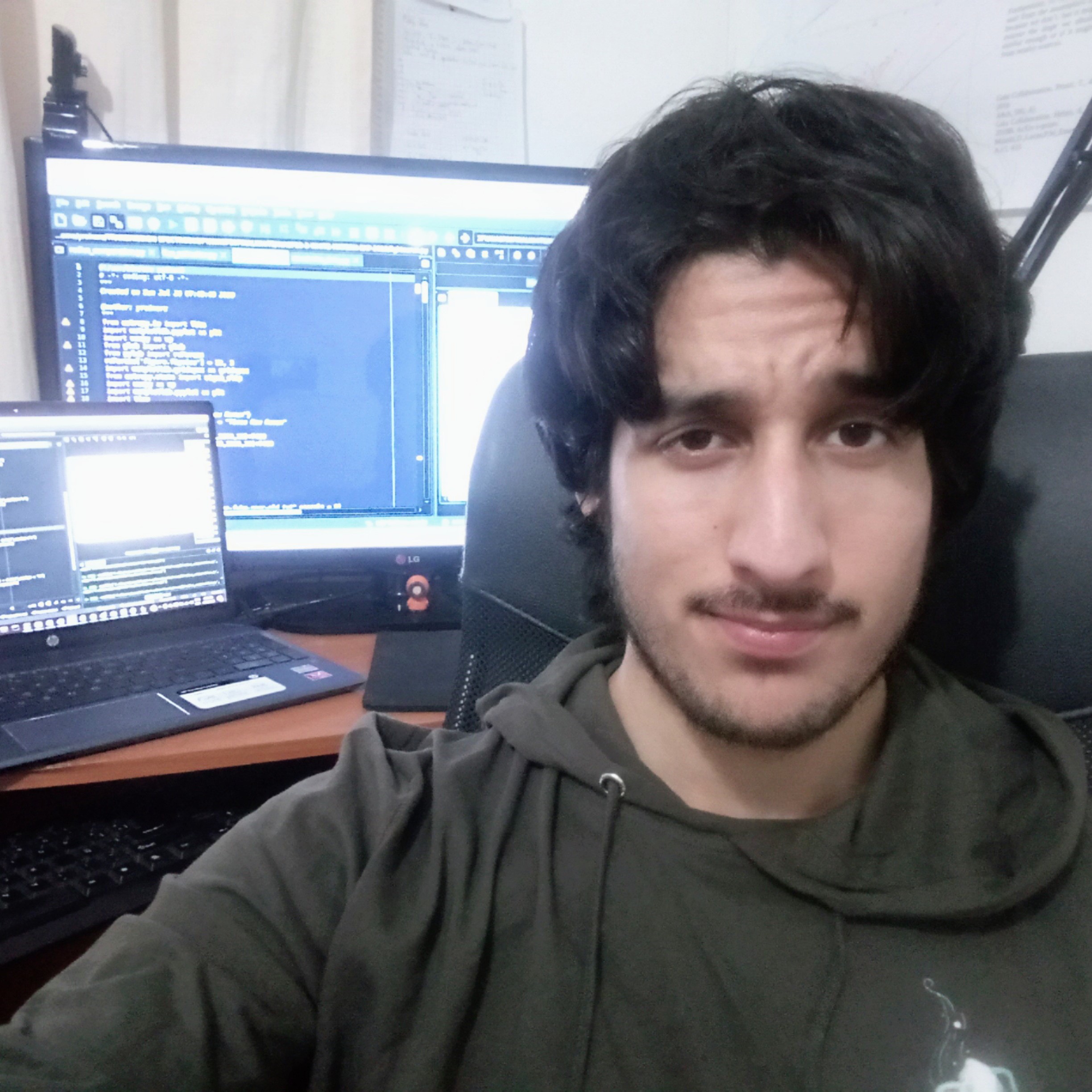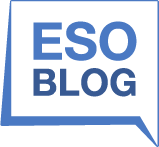- What it’s like to spend a summer working on astronomical research
- How the Summer Research Programme gave students insight into the scientific process and the lives of astronomers
- The range of activities experienced by this year’s students — from working on research projects to listening to astronomy talks, playing games online, and learning about ESO
- The opportunities and challenges that come with being part of a virtual summer school

Name: Soetkin Janssens
Nationality: Belgian
University: KU Leuven, Belgium
Project: The fingerprints of mass-loss in the nebula around a massive star near the end of its evolution
Advisors: Claudia Agliozzo, Neil Phillips & Andrea Mehner
Q: What were the most important things about the summer school for you?
A: When applying for something like a summer school, you expect that you will learn a lot and that it will broaden your research horizons. For example, working with a new type of data and learning different methods to approach certain problems or carry out research. It is the combination of knowing that I would be working with experts in a (to me) new research field, working with state-of-the-art data from ESO’s Very Large Telescope’s MUSE instrument and learning new research methods and insights, that made this summer school such an amazing opportunity. Even without a trip to the ESO Headquarters in Garching, Germany, we still got a good look at what the life of an ESO astronomer is like.
Q: How did you stay motivated during the programme?
A: My real motivation was the fact that I was learning all these new things. Performing my research, I felt that I was helping to solve the mysteries that remain in astronomy (in my case how the most massive stars evolve). As an astronomer-to-be, how could I not be motivated by that? The circumstances were not ideal but when you are learning something new, and know that you are contributing to scientific research, it really keeps you going. Or at least it did for me.

Name: Pablo Gómez Toribio
Nationality: Spanish
University: Universitat Politècnica de Catalunya, Spain
Project: Comparing ground and satellite-based climate data for atmospheric studies of astronomical relevance
Advisors: Tony Mroczkowski & Carlos de Breuck
Q: What are some of the skills you gained during the programme and how do you think they will help you further in your career?
A: Speaking about the technical part, I’ve definitely improved my programming abilities, since I had to code a lot using a language I was not too familiar with before. I’ve also learned how to manage satellite data and how to organise myself among such a large quantity of information. Not only that, my knowledge about many different astronomy topics has grown enormously thanks to the online astronomy talks we have attended. So overall, it has been a really enjoyable and instructive journey across the Earth data science and astronomy worlds.
More importantly, ahead of doing this programme, I had a vague idea of what research meant, but here I have discovered how much teamwork scientific research involves. The sense of community and the satisfaction obtained when sharing your knowledge and learning from other people who are experts in their fields is incomparable, and I think the contacts I’ve made will be really useful in the future.
Q: Was there anything that surprised you about working virtually?
A: It wasn’t easy. The last six months have been a constant adaptation, first to the academic world via video meetings, and then working remotely using video conferences. Of course nothing can be compared with face-to-face interaction, but I was (pleasantly) surprised that the ESO atmosphere could break through the screen. We had fun during science coffees with ESO Fellows, and we had some moments of relaxation playing online games or making bad jokes with other ESO summer school students. We were also able to have conferences with people from all around the world that we could join as they became virtual instead of physical. Anyway, I’d say that meeting people in person is always better than meeting them online (and unfortunately we couldn’t taste the ice creams from the ice cream truck that people on site could!).

Name: Alina Vorontseva
Nationality: Ukrainian
University: University of Tartu, Estonia
Project: Not going out quietly: variability in dying stars
Advisors: Nicola Gentile Fusillo, Anna Pala & Tommaso Marchetti
Q: What led you to apply for the ESO Summer Research Programme?
A: Even though I have never properly studied astronomy (I am actually a data scientist), it was always a huge part of my life. As an amateur astronomer, I have always been looking for opportunities to deepen my knowledge and participate in all astronomy-related events, be it hackathons, public lectures or summer schools. I even chose a topic for my master’s thesis about astronomical data. So, when I saw an announcement about the ESO Summer Research Programme, I didn’t think twice. I was so excited to even be considered for this programme, let alone to actually go to ESO and be a part of its scientific life for six weeks! Despite some things not exactly turning out the way I imagined, it was indeed an unforgettable experience.
Q: How has this experience contributed to your professional and personal development?
A: Applying for this programme was the smartest decision I have made for the last few years. I have been struggling with choosing my future career path for some time already. I wanted to do projects in astronomy, but I didn’t know if it would work out without proper education and I didn’t want to let go of my current profession which I already loved. But at ESO, I was given the opportunity to get a sense of how my life would be if I decided to follow a career in astronomy. I got all the answers and first-hand experience about scientific life, research pains and gains, trends in astronomy and ESO’s operations. This really helped me to make an informed decision in my career and be confident that it’s the right one. Finally, I just have to mention that I met (virtually) a lot of amazing people, many of whom are the best at what they do. I appreciate everything I learned from them as it shaped my understanding of what I want to achieve in my life.

Name: Yared Reinarz
Nationality: Chilean
University: Universidad Católica del Norte, Chile
Project: Probing the atmospheres of outer worlds: transmission spectroscopy of exoplanets
Advisors: Paulo Miles-Páez & Henri Boffin
Q How did you stay motivated during the programme?
A: Mainly through my advisors and the organisers of the project who followed our work, who were all very enthusiastic about our progress. The other students on the programme were also very keen and it felt motivating to work in parallel with them. At the beginning, I had some hardware issues that slowed me down a bit, but I got that sorted and there weren’t many issues after that.
Four months of quarantine can start doing funny things to your brain, and keeping in high spirits can be hard, but overall, the programme worked very well in keeping up both my short- and long-term motivation.
Q: You’re the first group for which the Summer Research Programme has been run virtually. What kind of challenges did this bring?
A: I think it was great that we were offered the opportunity to carry on with the programme virtually, since, given the global situation, there was no other way to do it.
Still, personally, I believe that in-person interaction is far superior and we lost an important opportunity not being able to travel and interact with the ESO community and the other students. I hope that we can meet in person when all this is over! However, I'm grateful for the people at ESO that made an extra big effort to adjust, who in the end, still provided us with such a nice experience.

Name: Zofia Kaczmarek
Nationality: Polish
University: University of Warsaw, Poland
Project: Searching for intermediate mass black holes
Advisors: Marianne Heida & George Lansbury
Q: What surprised you the most about the programme?
A: The first thing that comes to mind is how quickly we integrated into the ESO community, and how warm and welcoming it was! I talked with, shared ideas and laughed with so many people, students and staff, from Garching and Chile — and although I've never seen them in person, I still feel touched and inspired by them. With this I must note that there was tremendous effort from the organisers and advisors, making sure we felt 'at home' and comfortable despite all the challenges of remote work.
Our project also progressed more quickly than we expected (while usually it's the opposite), so people were joking that Marianne (my advisor) should have put some bugs in the code to make the experience more realistic!
Q: Tell us about one of your favourite memories from the programme.
A: My favourite memory is the welcome workshop where the organisers introduced us to the programme, ESO and its community. I remember my excitement: I was on my toes for the entire day before that! Working at ESO has been my dream for a few years, so the day that I finally started as an ESO summer student is definitely one to remember forever.
As for the workshop itself...of course I had expected a great atmosphere, but it was really incredible how quickly the barrier between us became non-existent and I just felt like we all were in the same room.
The farewell workshop was really moving as well, but not so much as I just knew it wasn't a real goodbye! We are definitely going to stay in touch and — fingers crossed — all meet at ESO Headquarters one day.
The advisors on virtual teaching
Anna Francesca Pala
“We used the chat for short exchanges and to share plots and data, switching to virtual calls for more complex discussions, finding in this way the right balance for a successful and smooth interaction with the students. Thanks to the virtual setup, students and advisors could work together while being in different countries and, in some cases, even in different time zones. All the students made the most of the programme even in this challenging situation, with all of them presenting impressive results in the final workshop.”
Paulo Alberto Miles Paez
“Virtual teaching was very rewarding and gave me some training on communication aspects that I was not very aware of. The big difference is that while my colleagues are more or less familiar with most aspects of how data are analysed, students aren’t. I had to revise the way in which I gave information, taking care of details, while not overloading the students so they could understand how things are done and the implications of their results.”
Marianne Heida
“I did find it more difficult to teach and mentor virtually, but not as much as I expected. In real life it would have been easier to drop by and take a look at the students’ work if they were having issues, but video calling was actually a pretty good replacement for that. I believe the project worked out just as well as it would have in real life. But the informal chats over coffee or lunch were unfortunately much harder to replace.”

